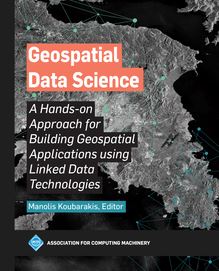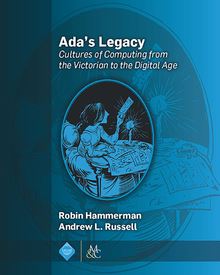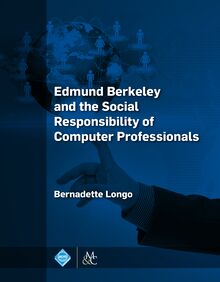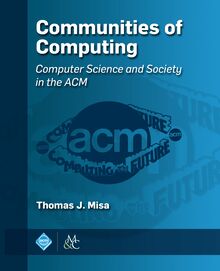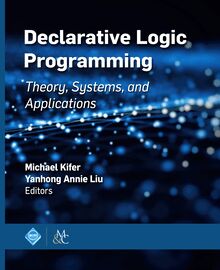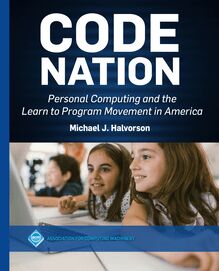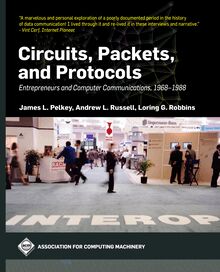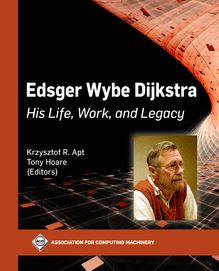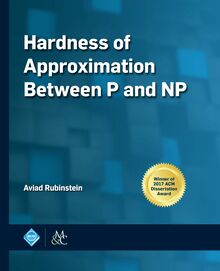-
 Univers
Univers
-
 Ebooks
Ebooks
-
 Livres audio
Livres audio
-
 Presse
Presse
-
 Podcasts
Podcasts
-
 BD
BD
-
 Documents
Documents
-
- Cours
- Révisions
- Ressources pédagogiques
- Sciences de l’éducation
- Manuels scolaires
- Langues
- Travaux de classe
- Annales de BEP
- Etudes supérieures
- Maternelle et primaire
- Fiches de lecture
- Orientation scolaire
- Méthodologie
- Corrigés de devoir
- Annales d’examens et concours
- Annales du bac
- Annales du brevet
- Rapports de stage
La lecture à portée de main
Vous pourrez modifier la taille du texte de cet ouvrage
Découvre YouScribe en t'inscrivant gratuitement
Je m'inscrisSmarter Than Their Machines , livre ebook
Découvre YouScribe en t'inscrivant gratuitement
Je m'inscrisEn savoir plus
Vous pourrez modifier la taille du texte de cet ouvrage
En savoir plus

Description
Sujets
Informations
| Publié par | Association for Computing Machinery and Morgan & Claypool Publishers |
| Date de parution | 01 novembre 2014 |
| Nombre de lectures | 0 |
| EAN13 | 9781627055529 |
| Langue | English |
| Poids de l'ouvrage | 1 Mo |
Informations légales : prix de location à la page 0,2450€. Cette information est donnée uniquement à titre indicatif conformément à la législation en vigueur.
Extrait
Smarter Than Their Machines
ACM Books
Editor in Chief
M. Tamer zsu, University of Waterloo
ACM Books is a new series of high-quality books for the computer science community, published by ACM in collaboration with Morgan Claypool Publishers. ACM Books publications are widely distributed in both print and digital formats through booksellers and to libraries (and library consortia) and individual ACM members via the ACM Digital Library platform.
Smarter than Their Machines: Oral Histories of Pioneers in Interactive Computing
John Cullinane, Northeastern University; Mossavar-Rahmani Center for Business
and Government, John F. Kennedy School of Government, Harvard University
2015
A Framework for Scientific Discovery through Video Games
Seth Cooper, University of Washington
2014
Trust Extension as a Mechanism for Secure Code Execution on Commodity Computers
Bryan Jeffrey Parno, Microsoft Research
2014
Embracing Interference in Wireless Systems
Shyamnath Gollakota, University of Washington
2014
Smarter Than Their Machines
Oral Histories of Pioneers in Interactive Computing
John Cullinane
Northeastern University
Mossavar-Rahmani Center for Business and Government, John F. Kennedy School of Government, Harvard University
ACM Books 4
Copyright 2015 by the Association for Computing Machinery and Morgan Claypool Publishers
All rights reserved. No part of this publication may be reproduced, stored in a retrieval system, or transmitted in any form or by any means-electronic, mechanical, photocopy, recording, or any other except for brief quotations in printed reviews-without the prior permission of the publisher.
Designations used by companies to distinguish their products are often claimed as trademarks or registered trademarks. In all instances in which Morgan Claypool is aware of a claim, the product names appear in initial capital or all capital letters. Readers, however, should contact the appropriate companies for more complete information regarding trademarks and registration.
Smarter Than Their Machines: Oral Histories of Pioneers in Interactive Computing
John Cullinane
books.acm.org
www.morganclaypool.com
ISBN: 978-1-62705-553-6 hardcover
ISBN: 978-1-62705-550-5 paperback
ISBN: 978-1-62705-551-2 ebook
ISBN: 978-1-62705-552-9 ePub
Series ISSN: (to come)
DOIs: 10.1145/2663015 Book
10.1145/2663015.2663016/ Preface
10.1145/2663015.2663017/ Introduction
10.1145/2663015.2663018/ Chapter 1
10.1145/2663015.2663019/ Chapter 2
10.1145/2663015.2663020/ Chapter 3
10.1145/2663015.2663021/ Chapter 4
10.1145/2663015.2663022/ Chapter 5
10.1145/2663015.2663023/ Chapter 6
10.1145/2663015.2663024/ Chapter 7
10.1145/2663015.2663025/ Chapter 8
A publication in the ACM Books series, 4
Editor in Chief: M. Tamer zsu, University of Waterloo
First Edition
10 9 8 7 6 5 4 3 2 1
To, my wife, Diddy, who, when I mentioned the idea of forming a company to specialize in software, responded with, Go ahead and do it. If it doesn t work out, I can always get a job.
Contents
Preface
Introduction
Chapter 1 Two Entrepreneurs with the Same Idea
Dr. Herbert W. Robinson (CEIR) Sam Wyly (University Computing Company)
Chapter 2 Two Computer Designers Who Thought Big
Richard Bloch (Honeywell 800, 400, 200) Gene Amdahl (IBM System/360)
Chapter 3 Timesharing in Academia and ARPA
J.C.R. Licklider Ivan Sutherland
Chapter 4 Packet Switching and ARPANET
Lawrence G. Roberts Robert Kahn
Photographs
Chapter 5 Artificial Intelligence and Changes at MIT and DARPA
Marvin L. Minsky Michael Dertouzos
Chapter 6 Creating Something Great in Unusual Places
Joseph F. Traub (Carnegie Mellon, Columbia University)
Chapter 7 Creating the Industry s First Successful Software Products Company
John Cullinane
Chapter 8 Summary
Author s Biography
Preface
I was quite astounded to come across the oral histories of so many computer industry pioneers at the Charles Babbage Institute (CBI), University of Minnesota. They included the oral histories of people I had worked for long ago, such as Dr. Herbert W. Robinson and George Dick at CEIR, Inc. I even discovered my own recorded oral history there! Consequently, I began reading them and found them fascinating. What many of them showed was how government, academia, and industry worked together to create the computer industry. Initially, it was to save America in World War II with new weapons, such as the atom bomb. New machines were needed and they had to be programmed to do the necessary computations. This is where my friend, Richard Bloch, comes in. He was the first programmer of the first programmable machine, the Mark I at Harvard, but he had the whole machine to himself. What was needed was interactive computing where many people could use a computer for a wide range of applications. I wouldn t get involved with computers until much later when they began to migrate from academia to industry.
The more I read these oral histories, the more convinced I became that these pioneers had much to offer today s leaders in industry, academia, and government on how to get difficult things done. As a Fellow at the Center for Business and Government at Harvard University, I got a good sense of how our government operates. It often starts with an idea that makes its way into a paper or book that then finds its way into a political campaign. If the candidate wins, it can become the law of the land. This book contains such an idea.
The history of computing shows that it took government, industry, and academia working together in an effective way to create computing as we know it today. America s democracy is now the oldest in the world, so repeating this idea is very important. That s where the oral histories of the pioneers that led to interactive computing come in. Some once helped save our democracy and, in the process, created the computer industry, which led to the Internet-both unanticipated results. It s possible to read in their oral histories how they did it and how the cooperation between government, industry, and academia actually worked. This book is a personal walk because my company, which was the industry s first successful software products company, provided the database foundation for many interactive computer systems for industry, government, and academia.
Acknowledgments
I would like to thank Tom Misa, Director of CBI, for his great support and help with this book. Also, I would like to thank Jeffrey Yost for his suggestions, as well as the excellent oral history he did of my own experiences with Cullinane Corporation. Of course, Martha Burnham, my long-time assistant, was very helpful in many ways, as usual.
Introduction
This book has its origins in an Internet search I did on Richard Bloch, a true computer industry pioneer, and a good friend. I was surprised at the results. There wasn t much information about him until I came across his oral history located in the archives at the Charles Babbage Institute (CBI), University of Minnesota. It was fascinating to read because I realized how little I really knew of his background as a computer industry pioneer. Maybe that s because he was never into discussing what he did yesterday. Richard was really an entrepreneur, as well as a brilliant renaissance man, who was interested in the big ideas of tomorrow. In the process of accessing his oral history I discovered that there were about 300 others at CBI, including my own. Some were individuals from my distant corporate past.
When I read some of these oral histories, I was struck by the fact that they were much more than interesting personal histories that occasionally brought up names of people or companies that I knew something about. They contained important messages that are as pertinent today as they were then because they were all about getting things done against great odds. They could even help save our democracy, as they did then. Thus, the reason for the book is two-fold. One is to pay homage to a few great pioneers, such as Richard Bloch, who may otherwise be forgotten but, better still, to replay their messages that so resonated with me, and therefore will hopefully resonate with the reader as well. Some of these messages are as follows:
One imaginative person can create something great in the most unlikely of places.
One person can succeed with exactly the same idea when another fails.
Most new ideas require getting around a system to succeed.
Individuals can do remarkable things no matter how young, or experienced, they may be.
Government, industry, and academia working together can do great things, such as create the computer industry.
There are always unanticipated results to any action.
In essence, this book is a personal walk through the history of the computer industry as I participated in and witnessed it. To me, the industry has been comprised of three eras. The first was the computation era. This is illustrated by what Richard Bloch was doing at Harvard on the Mark I computer and what was happening at other universities. He was using a new machine to do the necessary computations for John von Neumann as part of the Manhattan Project in order to make an atom bomb in World War II, hence the name computers. They were, in essence, saving our democracy. The next era is what I call the data processing era. This is when computer manufacturers began selling computers to industry primarily for data processing, which, initially, they were not well suited to do. Richard Bloch and Gene Amdahl were major contributors in designing these computers. The third era is what I call the interactive computing era, which we are currently in. There have been many tools and/or names involved in it over the years such as timesharing, on-line query, client/server, data mining, search engines, email, word processors, spreadsheets, social media, Big Data, mobile phones, etc. Everyone has always wanted more access to computerized
-
 Univers
Univers
-
 Ebooks
Ebooks
-
 Livres audio
Livres audio
-
 Presse
Presse
-
 Podcasts
Podcasts
-
 BD
BD
-
 Documents
Documents
-
Jeunesse
-
Littérature
-
Ressources professionnelles
-
Santé et bien-être
-
Savoirs
-
Education
-
Loisirs et hobbies
-
Art, musique et cinéma
-
Actualité et débat de société
-
Jeunesse
-
Littérature
-
Ressources professionnelles
-
Santé et bien-être
-
Savoirs
-
Education
-
Loisirs et hobbies
-
Art, musique et cinéma
-
Actualité et débat de société
-
Actualités
-
Lifestyle
-
Presse jeunesse
-
Presse professionnelle
-
Pratique
-
Presse sportive
-
Presse internationale
-
Culture & Médias
-
Action et Aventures
-
Science-fiction et Fantasy
-
Société
-
Jeunesse
-
Littérature
-
Ressources professionnelles
-
Santé et bien-être
-
Savoirs
-
Education
-
Loisirs et hobbies
-
Art, musique et cinéma
-
Actualité et débat de société
- Cours
- Révisions
- Ressources pédagogiques
- Sciences de l’éducation
- Manuels scolaires
- Langues
- Travaux de classe
- Annales de BEP
- Etudes supérieures
- Maternelle et primaire
- Fiches de lecture
- Orientation scolaire
- Méthodologie
- Corrigés de devoir
- Annales d’examens et concours
- Annales du bac
- Annales du brevet
- Rapports de stage
